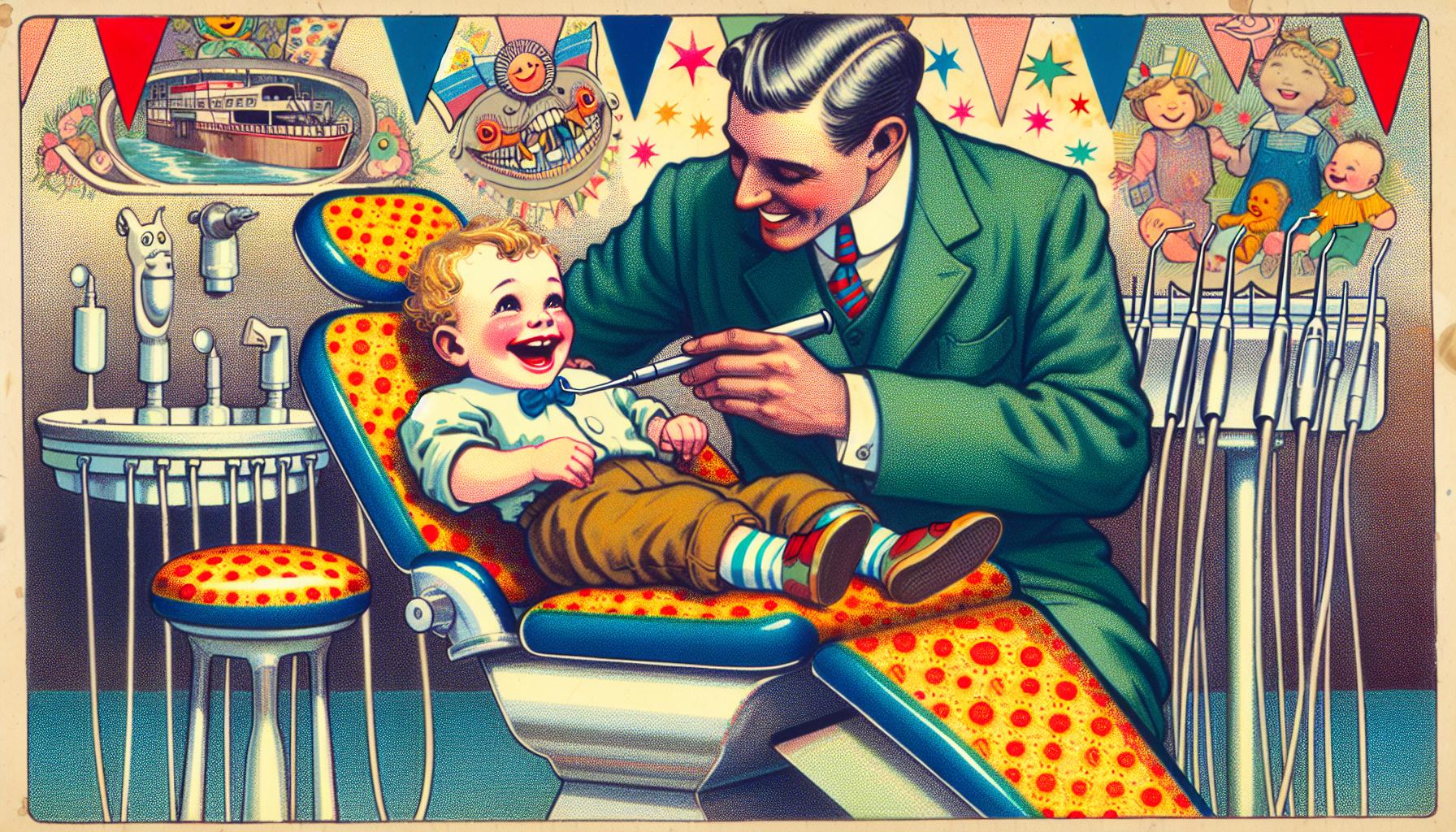Navigating the world of parenting comes with countless decisions, and knowing when to take a baby to the dentist is one of them. Early dental visits are crucial for establishing good oral health habits and preventing future issues. This article explores the ideal timeline for dental check-ups and highlights the importance of starting dental care early in a child’s life.
Importance of Dental Care for Babies
Dental care for babies plays a crucial role in establishing a healthy foundation for oral health. Starting dental visits early helps monitor the development of teeth and gums, ensuring any potential issues are identified promptly.
At Brisbane Paediatric Dentist, regular check-ups allow dentists to educate parents on proper dental hygiene techniques tailored for infants. This knowledge helps reduce the risk of tooth decay, which can start as soon as the first tooth emerges. According to the American Dental Association, infants should visit the dentist by their first birthday or within six months of their first tooth eruption.
Early dental care prevents more serious problems later in life. Establishing good habits, such as brushing twice daily and limiting sugary foods, sets the stage for lifelong oral health. Addressing issues like early childhood cavities can minimise discomfort and the need for extensive treatment.
Furthermore, dental visits can help children become familiar with a dental environment, reducing fear and anxiety for future appointments. When children grow accustomed to routine check-ups, they develop positive associations with dental care, promoting better oral hygiene as they grow.
Overall, prioritising dental care from infancy builds a pathway to healthy teeth and gums throughout childhood and into adulthood.
When to Take Baby to Dentist

Taking a baby to the dentist at the right time ensures good oral health from an early age. The following details provide guidance on the ideal timing for initial dental visits and signals indicating the need for professional dental care.
First Dental Visit Guidelines
Babies should see a dentist by their first birthday or within six months of the first tooth’s emergence. The first visit sets the stage for a lifetime of good dental habits. Dentists typically assess the baby’s teeth and gums, offer advice on proper oral hygiene practices, and answer any parental questions. Ensure the dental practice is child-friendly, as a positive experience helps reduce anxiety in future visits.
Signs Your Baby Needs to See a Dentist
Several signs may indicate the necessity for a dental visit before the first birthday:
- Pain or Discomfort: Signs of irritation, such as crying during feeding or sleep disruption, suggest potential dental issues.
- Discolouration: Dark spots or visible damage on the teeth may indicate decay.
- Swelling or Redness: Swelling in the gums or mouth may require immediate assessment.
- Delayed Eruption: If teeth do not emerge within the expected timeline, dental evaluation is essential.
Regular dental visits empower parents with knowledge about effective infant oral care, helping to prevent developmental issues and create a foundation for healthy teeth and gums.
Preparing for the Dental Visit
Preparation plays a crucial role in making the dental visit smooth for both baby and parent. Parents should ensure that they know what to expect and how to ease any potential anxiety for their child.
What to Expect at the Appointment
During the appointment, the dentist assesses the baby’s teeth and gums, checking for abnormalities or early signs of dental issues. The dentist usually begins with a gentle examination, which may include counting teeth and inspecting them for decay. Parents receive guidance on age-appropriate oral hygiene practices, including methods for brushing and caring for gums. The visit typically lasts 20 to 30 minutes, allowing time for questions and discussion.
Tips for Easing Baby’s Anxiety
- Familiarise with the Environment: Take the baby to the dental office beforehand to reduce unfamiliarity.
- Read Books about Dental Visits: Share children’s books featuring dental visits to normalise the experience.
- Stay Calm During the Visit: Maintain a relaxed demeanor to encourage the baby to feel at ease.
- Bring a Comfort Item: Allow the baby to bring a favourite toy or blanket for reassurance.
- Use Positive Language: Speak about the dental visit in positive terms to create a more inviting perception.
Maintaining Oral Health at Home
Maintaining oral health at home is crucial for preventing dental issues early on. Parents should establish a routine that ensures proper care of their baby’s teeth and gums from infancy.
- Clean the gums: Use a soft, damp cloth to wipe the baby’s gums after feedings. This practice helps remove bacteria and establishes a dental hygiene routine.
- Brush when teeth emerge: Once teeth appear, use a small, soft-bristled toothbrush with a tiny smear of fluoride toothpaste. This practice aids in cleaning teeth properly and promotes healthy dental habits.
- Limit sugary foods and drinks: Reduce the intake of sugary snacks and beverages. High sugar consumption can lead to tooth decay and other oral health problems.
- Encourage water intake: Offer water throughout the day, especially after meals. Water helps wash away food particles and sugars, promoting better oral hygiene.
- Avoid sharing utensils: Refrain from sharing spoons or other utensils with the baby. This prevents the transfer of bacteria that can cause dental issues.
- Monitor fluoride exposure: Ensure appropriate fluoride levels by using fluoride toothpaste. Contact a dentist for guidance on fluoride supplementation, depending on local water supply.
- Arrange regular check-ups: Schedule dental visits as recommended by the dentist. Regular assessments of the child’s teeth and gums support ongoing oral health.
By incorporating these practices into daily routines, parents lay the foundation for excellent oral health throughout their child’s life.
Conclusion
Establishing a dental care routine for babies is vital for their long-term oral health. By scheduling that first visit by their first birthday or within six months of the first tooth, parents set the stage for healthy habits. Recognising signs that warrant an earlier visit ensures any potential issues are addressed promptly.
Creating a positive dental experience can significantly impact a child’s attitude towards oral care. By incorporating good practices at home and maintaining regular check-ups, parents can prevent future dental problems. This proactive approach not only fosters healthy teeth and gums but also instils a sense of confidence in children as they grow. Prioritising dental health from infancy lays the groundwork for a lifetime of smiles.
Frequently Asked Questions
When should my baby first visit the dentist?
Babies should see a dentist by their first birthday or within six months of their first tooth erupting. This early visit helps establish good oral health habits.
Why are early dental visits important for infants?
Early dental visits are crucial for monitoring the development of teeth and gums, identifying potential issues, and teaching parents about proper dental hygiene.
What signs indicate my baby needs to see a dentist sooner?
Signs that require an earlier visit include tooth pain, discolouration, swollen or red gums, and delayed tooth eruption.
How long does a baby’s dental appointment usually last?
A typical dental appointment for a baby lasts between 20 to 30 minutes, during which the dentist conducts a gentle examination.
How can I prepare my baby for their dental visit?
Familiarise your baby with the dental environment, read dental-themed books, maintain a calm demeanour, and bring a comfort item to ease anxiety.
What should I do for my baby’s dental care at home?
Establish a routine that includes cleaning gums with a damp cloth, brushing teeth with a soft-bristled toothbrush, and limiting sugary foods and drinks.
